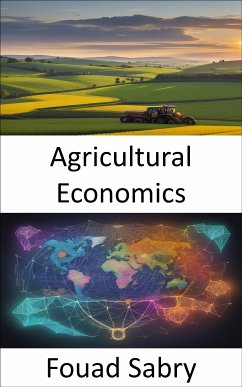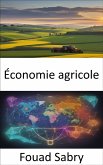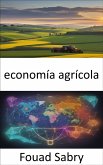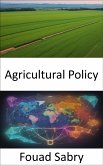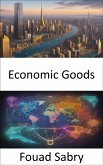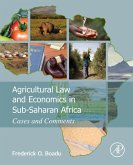What is Agricultural Economics
Agricultural economics is a subfield of applied economics that focuses on applying economic theory to optimize the production and distribution of food and fiber products. It is considered to be an applied discipline of economics. Agricultural economics started out as a subfield of economics that focused exclusively on issues related to land consumption. The goal was to increase the agricultural output while minimizing the negative impact on the ecosystem of the soil. The field of study grew over the 20th century, and its current scope encompasses a far wider range of topics than it did in the past. The modern study of agricultural economics encompasses a wide range of application areas, many of which overlap significantly with those of traditional economics. Research in the fields of economics, econometrics, development economics, and environmental economics have all benefited significantly from the contributions made by agricultural economists. The economics of agriculture has an impact not only on food policy but also on agricultural policy and environmental policy.
How you will benefit
(I) Insights, and validations about the following topics:
Chapter 1: Agricultural economics
Chapter 2: Applied economics
Chapter 3: Gordon Rausser
Chapter 4: Marc Nerlove
Chapter 5: Association of Environmental and Resource Economists
Chapter 6: Siegfried von Ciriacy-Wantrup
Chapter 7: Colin Carter
Chapter 8: Daniel Bromley
Chapter 9: Rural economics
Chapter 10: David Zilberman (economist)
Chapter 11: Jayson Lusk
Chapter 12: George S. Tolley
Chapter 13: Yoav Kislev
Chapter 14: Gerald Shively
Chapter 15: Scott H. Irwin
Chapter 16: Elisabeth Sadoulet
Chapter 17: William A. Masters
Chapter 18: Awudu Abdulai
Chapter 19: Jill McCluskey
Chapter 20: Matin Qaim
Chapter 21: Uma Lele
(II) Answering the public top questions about agricultural economics.
(III) Real world examples for the usage of agricultural economics in many fields.
(IV) Rich glossary featuring over 1200 terms to unlock a comprehensive understanding of agricultural economics
Who this book is for
Professionals, undergraduate and graduate students, enthusiasts, hobbyists, and those who want to go beyond basic knowledge or information for any kind of agricultural economics.
Agricultural economics is a subfield of applied economics that focuses on applying economic theory to optimize the production and distribution of food and fiber products. It is considered to be an applied discipline of economics. Agricultural economics started out as a subfield of economics that focused exclusively on issues related to land consumption. The goal was to increase the agricultural output while minimizing the negative impact on the ecosystem of the soil. The field of study grew over the 20th century, and its current scope encompasses a far wider range of topics than it did in the past. The modern study of agricultural economics encompasses a wide range of application areas, many of which overlap significantly with those of traditional economics. Research in the fields of economics, econometrics, development economics, and environmental economics have all benefited significantly from the contributions made by agricultural economists. The economics of agriculture has an impact not only on food policy but also on agricultural policy and environmental policy.
How you will benefit
(I) Insights, and validations about the following topics:
Chapter 1: Agricultural economics
Chapter 2: Applied economics
Chapter 3: Gordon Rausser
Chapter 4: Marc Nerlove
Chapter 5: Association of Environmental and Resource Economists
Chapter 6: Siegfried von Ciriacy-Wantrup
Chapter 7: Colin Carter
Chapter 8: Daniel Bromley
Chapter 9: Rural economics
Chapter 10: David Zilberman (economist)
Chapter 11: Jayson Lusk
Chapter 12: George S. Tolley
Chapter 13: Yoav Kislev
Chapter 14: Gerald Shively
Chapter 15: Scott H. Irwin
Chapter 16: Elisabeth Sadoulet
Chapter 17: William A. Masters
Chapter 18: Awudu Abdulai
Chapter 19: Jill McCluskey
Chapter 20: Matin Qaim
Chapter 21: Uma Lele
(II) Answering the public top questions about agricultural economics.
(III) Real world examples for the usage of agricultural economics in many fields.
(IV) Rich glossary featuring over 1200 terms to unlock a comprehensive understanding of agricultural economics
Who this book is for
Professionals, undergraduate and graduate students, enthusiasts, hobbyists, and those who want to go beyond basic knowledge or information for any kind of agricultural economics.
Dieser Download kann aus rechtlichen Gründen nur mit Rechnungsadresse in A, B, BG, CY, CZ, D, DK, EW, E, FIN, F, GR, H, IRL, I, LT, L, LR, M, NL, PL, P, R, S, SLO, SK ausgeliefert werden.

